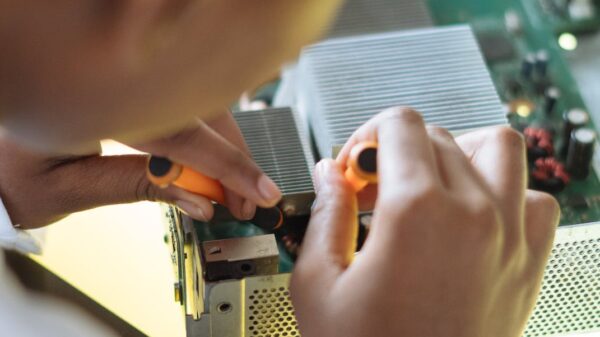Welcome to the future of home automation! If you have ever dreamt of a smart home that can control everything from lighting to temperature and even grocery shopping, then you are not alone. With technological advancements in recent years, smart homes have become more affordable and accessible than ever before. From voice-activated assistants like Amazon’s Alexa or Google Assistant to intelligent security systems that can alert homeowners about potential break-ins, there has never been a better time to upgrade your living space with cutting-edge technology. In this blog post, we explore the exciting world of smart homes and how they are transforming the way we live our lives at home. So sit back, relax and let us take you on a journey into the future!
What is Smart Home Automation?
Smart home automation is the process of automating various tasks and processes in the home, such as controlling the lighting, temperature, security, and other systems. It can be used to make life easier and more convenient, as well as help save energy and money. There are a variety of different products and services available to automate your home, and it’s important to choose the right one for your needs.
Benefits of Smart Homes
There are many benefits to having a smart home. One of the most obvious benefits is the convenience factor. With a smart home, you can control your lights, appliances, and security system from your smartphone or tablet. This means that you can come home to a well-lit house, even if you forget to turn on the lights before you leave for work. You can also set your home’s thermostat to the perfect temperature before you get home, so you’re not walking into a hot or cold house.
Another great benefit of smart homes is the increased security they offer. With a smart security system, you can receive alerts if someone breaks into your house, or if there’s a fire or gas leak. You can also monitor who comes and goes from your house, and set up rules such as locking the doors at night or when you’re away from home.
Finally, smart homes can help you save money on your energy bills. By monitoring your energy usage and controlling your appliances remotely, you can make sure that you’re not wasting energy when no one is home. You can also set up timers to make sure that your lights and appliances are turned off when they’re not needed. All of these factors can lead to lower energy bills each month.
Different Types of Smart Home Technology
There are many different types of smart home technology available these days. You can choose from a wide variety of products and services that can automate your home’s systems and make your life easier. Here are some of the most popular types of smart home technology:and
1. Smart Lighting: You can now control your home’s lights using your smartphone or voice commands. There are a variety of smart lighting products available that allow you to schedule when your lights turn on and off, change the color of your lights, and even dim them.
2. Smart Thermosta: Smart thermostats allow you to control your home’s temperature using your smartphone or voice commands. You can set temperature schedules, adjust the temperature based on whether someone is home, and even receive alerts if the temperature in your home drops below a certain level.
3. Smart Locks: Smart locks allow you to lock and unlock your doors using your smartphone or voice commands. You can also set up rules so that your doors automatically lock when you leave the house and unlock when you arrive home. Some smart locks also allow you to grant access to visitors without giving them a key.
4. Smart camera : Smart cameras offer a variety of features that traditional security cameras don’t have. You can view live footage from your camera on your smartphone, receive alerts if someone is trying to break into your home, and even record footage to review later.
Security and Privacy Implications of Smart Homes
As more and more devices in our homes become connected to the internet, it’s important to consider the security and privacy implications of this trend. Smart homes are particularly vulnerable to attack, as they often contain a wealth of personal information about their occupants. Here are some things to keep in mind when considering a smart home:
-Many smart home devices collect data about their users. This data can include everything from your daily routines to your personal preferences. While this data can be used to improve your user experience, it also means that your privacy is at risk. Be sure to read the privacy policies of any smart home devices you’re considering purchasing, and only buy devices from companies you trust.
-Smart homes are often controlled by a central hub, which can be a prime target for hackers. If this hub is compromised, all of your smart devices could be at risk. Be sure to choose a reliable and secure hub for your smart home, and keep it updated with the latest security patches.
-If you have voice-activated assistants like Amazon Echo or Google Home, keep in mind that these devices are always listening for their wake words. This means that they could potentially overhear private conversations or collect sensitive information without your knowledge. If you’re concerned about privacy, consider disabling voice control on these devices or keeping them in areas where you feel comfortable talking freely.
Tips for Setting Up a Home System
There are a few things to keep in mind when setting up a smart home system:
1. Make sure all of your devices are compatible with the system.
2. Choose a central hub for your system, such as Amazon Echo or Google Home.
3. Place sensors around your home in strategic locations, such as near doors and windows.
4. Install lighting controls to automate the lighting in your home.
5. Consider adding a security camera to your system for added peace of mind.
Best Practices for Maintaining a
Home
There are a few key things to keep in mind when it comes to maintaining a smart home. First, always keep your system updated with the latest software and security patches. This will help ensure that your system is as secure as possible and can defend against any new threats that may arise.
Second, be sure to create backups of your data and settings. This way, if something does go wrong, you’ll be able to restore your system to its previous state.
Finally, take some time to learn about the different features of your system and how to use them effectively. By doing so, you’ll be able to get the most out of your smart home and make it work for you in the way that you want.
Alternatives
There are many alternatives to smart home automation. Some people choose to use traditional home automation systems, while others use more basic methods like manually controlling their lights and appliances. There are also a variety of DIY home automation solutions available.
Traditional home automation systems can be expensive and require professional installation. They also typically require a monthly subscription fee. However, they offer a wide range of features and can be controlled from a central hub.
Basic methods like manually controlling lights and appliances can be time-consuming and tedious. However, they don’t require any special ;
DIY home automation solutions can be a great option for those who want to save money or have specific needs that aren’t met by traditional systems. There are a variety of kits and tutorials available online to help you get started.
Conclusion
Smart homes are the future of home automation and can bring a variety of benefits to homeowners. They allow for greater convenience, energy efficiency, security, and more. With the ever-growing technology available today, smart home systems are becoming increasingly easier to install and customize in order to fit your individual lifestyle needs. Whether you’re looking for simple voice commands or complex automation protocols, there is sure to be something out there that will suit your needs. Be sure to do your research before investing in any system so that you get the most out of it.









